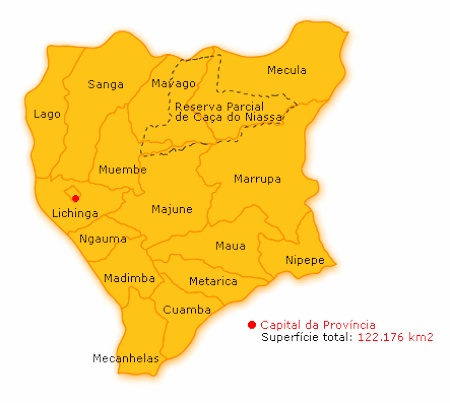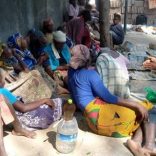Mozambique: Health Ministry hopes to vaccinate 18 million children against polio
Progress claimed in Niassa water and sanitation- Mozambique

The Japanese International Cooperation Agency (JICA) on Friday expressed satisfaction at the degree of implementation of the water, hygiene and rural sanitation project it is undertaking, in partnership with the Mozambican government, in the northern province of Niassa.
The project is known as PROSUAS (Project to Promote Sustainable Water Supply, Hygiene and Rural Sanitation), and JICA representatives met with the Mozambican authorities in Maputo to assess the impact and efficiency of the project.
PROSUAS began in 2013, and its aim was to improve water supply and rural sanitation in the Niassa districts of Mavago, Muembe, Majune, Mandimba, Metarica and Cuamba. This was to be achieved by building new water sources and rehabilitating existing ones, installing sanitation facilities in schools in the target districts, and raising the awareness of the public about adequate hygiene and sanitation practices.
“We have felt a very positive reaction from the beneficiaries, from society at large, and from the other organizations which have accompanied the implementation of PROSUAS”, stressed Katsuyoshi Sudo, the resident representative of JICA in Mozambique.
He believed that the project will make a significant contribution to improving water supply and sanitation in Niassa, and that PROSUAS “could serve as a reference point for several African countries”.
According to the Niassa Provincial Directorate of Public Works, under PROSUAS 50 new water sources have been built, and 65 that had broken down have been repaired. 20 sanitation blocks, with hand washing facilities, have been installed in schools. Staff can use eight motor-cycles acquired by PROSUAS to visit the water sources, and have been issued with equipment to measure the level of the water in the wells and boreholes and to test its quality.
The Provincial Director, Americo Chivale, said that 110 local water committees have been set up, and 20 technical staff trained in matters of water supply and sanitation. 37 artisans have been trained in building latrines in communities.
Seven local traders have been trained in how to install spare parts for the pumps. Chivale was optimistic that this will cut the time for repairs from several months to a few days.












Leave a Reply
Be the First to Comment!
You must be logged in to post a comment.
You must be logged in to post a comment.